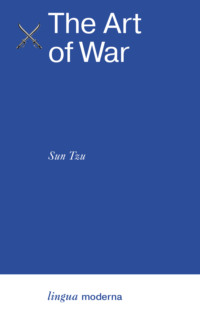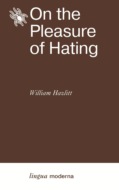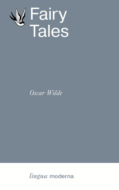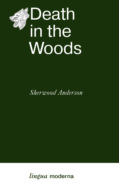Kitabı oku: «The Art of War», sayfa 3
II
Operations of war
Sun the Master said:-
Now the requirements of war are such that we need a thousand light chariots with four horses each; a thousand leather-covered chariots, and one hundred thousand armoured men; and we must send supplies to distant fields. Wherefore the cost at home and in the field, the entertainment of guests, glue and lacquer for repairs, and necessities for the upkeep of waggons and armour are such that in one day a thousand pieces of gold are spent. With that amount a force of one hundred thousand men can be raised:-you have the instruments of victory.
But, even if victorious, let the operations long continue, and the soldiers’ ardour decreases, the weapons become worn, and, if a siege be undertaken, strength disappears.
Again, if the war last long, the country’s means do not suffice. Then, when the soldiers are worn out, weapons blunted, strength gone and funds spent, neighbouring princes arise and attack that weakened country. At such a time the wisest man cannot mend the matter.
For, while quick accomplishment has been known to give the victory to the unskilful, the skilful general has never gained advantage from lengthy operations.
In fact, there never has been a country which has benefited from a prolonged war.
He who does not know the evils of war will not reap advantage thereby. He who is skilful in war does not make a second levy, does not load his supply waggons thrice.
War material and arms we obtain from home, but food sufficient for the army’s needs can be taken from the enemy.
The cost of supplying the army in distant fields is the chief drain on the resources of a state: if the war be distant, the citizens are impoverished.
In the neighbourhood of an army prices are high, and so the money of the soldiers and followers is used up. Likewise the state funds are exhausted, and frequent levies must be made; the strength of the army is dissipated, money is spent, the citizen’s home swept bare: in all, seven-tenths of his income is forfeited. Again, as regards State property, chariots are broken, horses worn out, armour and helmet, arrow and bow, spear, shield, pike and fighting tower, waggon and oxen used and gone, so that six-tenths of the Government’s income is spent.
Therefore the intelligent general strives to feed on the enemy; one bale of the enemy’s rice counts as twenty from our own waggons; one bundle of the enemy’s forage is better than twenty of our own.
Incitement must be given to vanquish the enemy.
They who take advantage of the enemy should be rewarded.
They who are the first to lay their hands on more than ten of the enemy’s chariots should be rewarded; the enemy’s standard on the chariots exchanged for our own; the captured chariots mixed with our own chariots and taken into use.
The accompanying warriors must be treated well, so that, while the enemy is beaten, our side increases in strength.
Now the object of war is victory; not lengthy operations, even skilfully conducted.
The good general is the lord of the people’s lives, the guardian of the country’s welfare.
III
The attack by stratagem
Sun the Master said:-
Now by the laws of war, better than defeating a country by fire and the sword, is to take it without strife.
Better to capture the enemy’s army intact than to overcome it after fierce resistance.
Better to capture the “Lu,”4 the “Tsu” or the “Wu” whole, than to destroy them in battle.
To fight and conquer one hundred times is not the perfection of attainment, for the supreme art is to subdue the enemy without fighting.
Wherefore the most skilful warrior outwits the enemy by superior stratagem; the next in merit prevents the enemy from uniting his forces; next to him is he who engages the enemy’s army; while to besiege his citadel is the worst expedient.
A siege should not be undertaken if it can possibly be avoided. For, before a siege can be commenced, three months are required for the construction of stages, battering-rams and siege engines; then a further three months are required in front of the citadel, in order to make the “Chuyin.”5 Wherefore the general is angered, his patience exhausted, his men surge like ants against the ramparts before the time is ripe, and one-third of them are killed to no purpose. Such are the misfortunes that sieges entail.
Therefore the master of war causes the enemy’s forces to yield, but without fighting; he captures his fortress, but without besieging it; and without lengthy fighting takes the enemy’s kingdom. Without tarnishing his weapons he gains the complete advantage.
This is the assault by stratagem.
By the rules of war, if ten times as strong as the enemy, surround him; with five times his strength, attack; with double his numbers, divide. If equal in strength, exert to the utmost, and fight; if inferior in numbers, manœuvre and await the opportunity; if altogether inferior, offer no chance of battle. A determined stand by inferior numbers does but lead to their capture.
The warrior is the country’s support. If his aid be entire, the country is of necessity strong; if it be at all deficient, then is the country weak.
Now a prince may embarrass his army in three ways, namely:-
Ignorant that the army in the field should not advance, to order it to go forward; or, ignorant that the army should not retreat, order it to retire.
This is to tie the army as with a string.
Ignorant of military affairs, to rule the armies in the same way as the state.
This is to perplex the soldiers.
Ignorant of the situation of the army, to settle its dispositions.
This is to fill the soldiers with distrust.
If the army be perplexed and distrustful, then dangers from neighbouring princes arise. The army is confounded, and offered up to the enemy.
There are five occasions when victory can be foretold:-
When the general knows the time to fight and when not to fight; or understands when to employ large or small numbers; when government and people are of one mind; when the state is prepared, and chooses the enemy’s unguarded moment for attack; when the general possesses ability, and is not interfered with by his prince.
These five things are the heralds of victory.
It has been said aforetime that he who knows both sides has nothing to fear in a hundred fights; he who is ignorant of the enemy, and fixes his eyes only on his own side, conquers, and the next time is defeated; he who not only is ignorant of the enemy, but also of his own resources, is invariably defeated.
Ücretsiz ön izlemeyi tamamladınız.








